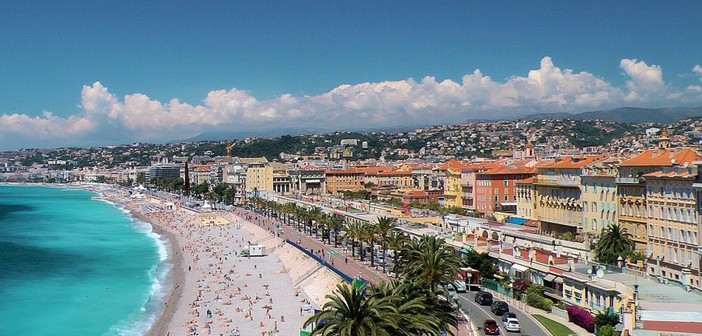A tourism crisis cell for the Côte d’Azur was held this Tuesday with the presence of Rudy Salles, deputy of the Alpes-Maritimes, and David Lisnard, mayor of Cannes and president of the Regional Tourism Committee (CRT). Numerous stakeholders in the tourism industry of the Côte d’Azur discussed ways to revive the tourism sector, following the Nice attack that took place on July 14.
Tourism is a major issue for the Côte d’Azur territory, representing 50% of the area’s GDP. After this attack, the industry is reported to have been seriously impacted. According to Emmanuel Macron, Minister of Economy, Industry, and Digital Affairs, the Nice metropolitan area faced 20 to 30% hotel cancellations, affecting mainly the high-end clientele, since the tragedy.
The impact on these activities is enormous. Additionally, according to David Lisnard, all previous social movements, such as the repeated strikes, including those by Air France, which are resuming today, are considered “indecent” by the CRT president.
Numerous measures have already been implemented. For this purpose, a million-euro fund has been allocated. Initially, it will allow a major digital campaign around the hashtag #CoteDazurNow, worth 150,000 euros and starting from today. The hashtag is deemed “unifying” by David Lisnard: “This hashtag will allow the Côte d’Azur to showcase its strengths worldwide. Strategies are being developed around it, with genuine intent to build a common project with resources. We will particularly ask major influencers to use it: actors, stars who regularly visit the Croisette in May, media outlets, tour operators, etc.” The hashtag is already available. Its peak popularity is expected in August.
Until September, 200,000 euros will be released to allow local media and residents to also become region ambassadors, promoting the courage and well-being of the area, “around the bright image of the Côte d’Azur, the sun,” recalls David Lisnard.
A newsletter will also be sent to over two million customers and prospects across Europe, in partnership with the “voyage-sncf” website, to instill the desire to return.
Finally, a prospecting campaign across China will take place at the end of the year. This campaign is annual and not unprecedented, but this year it will likely be modified and the message presented will be different due to the attack.
The hashtag will be well-integrated. It is supposed to be a call, a slogan, similar to those brief phrases tweeted that create a “buzz” online. It must capture minds.
Chinese prospects will not just be informed, “we are able to invite the three or four heads of the best Chinese tour operators. These are the most influential in the country. This allows us to let them testify upon their return to China,” says Michel Chevillon, president of the Union of Hotel Trades and Industries (UMIH).
According to him, with regards to the Americans, it is more complicated. They were truly shocked by what happened, “but this area will likely not be deserted.”
Thibault Bourru


